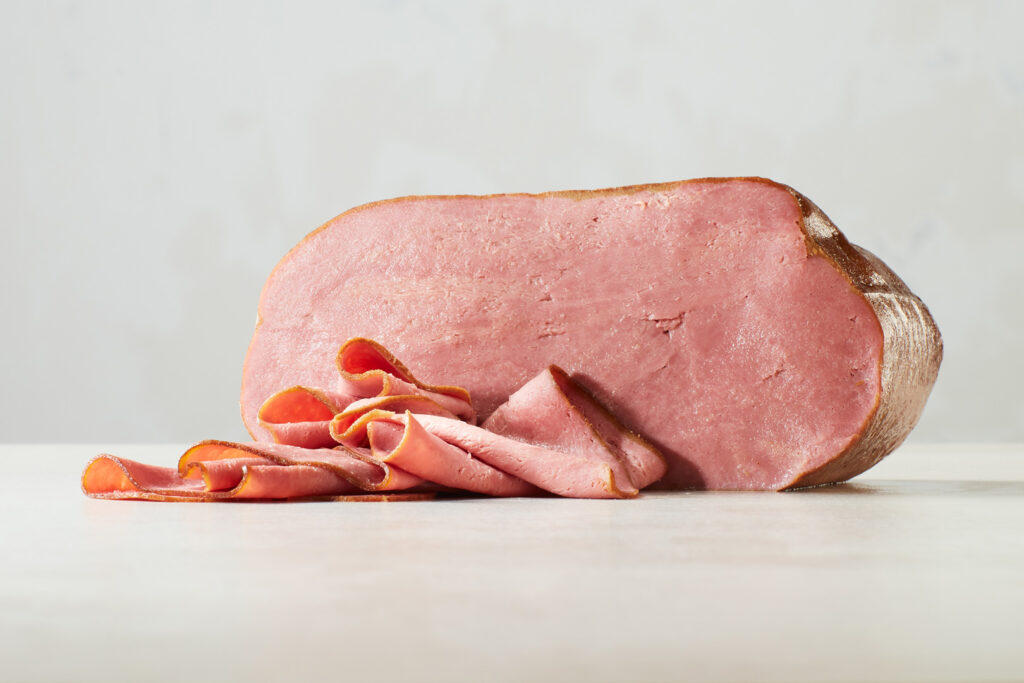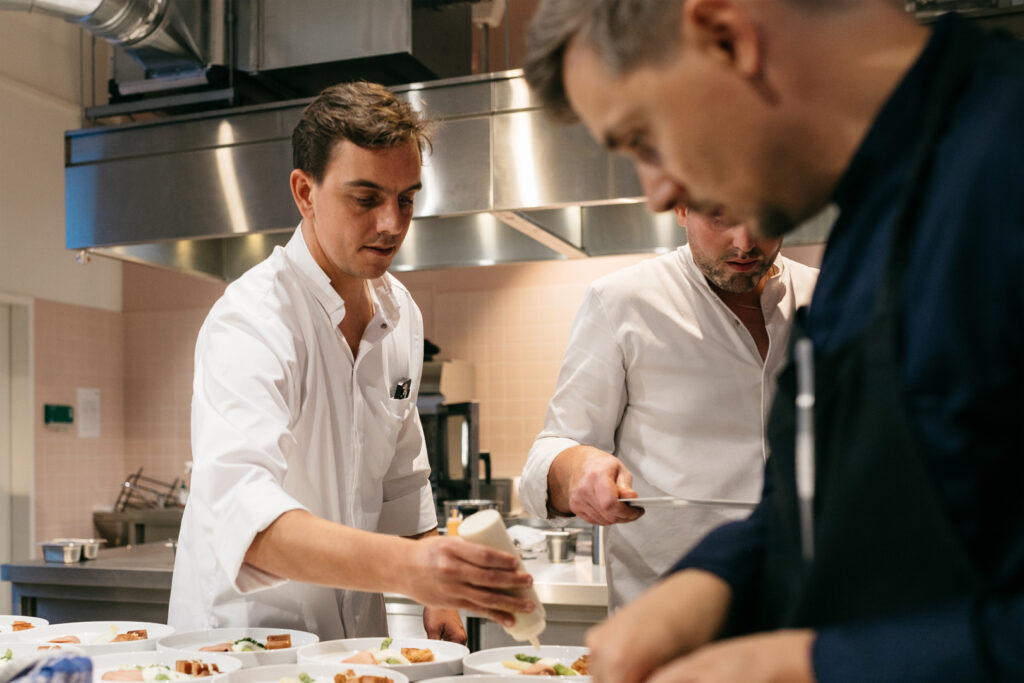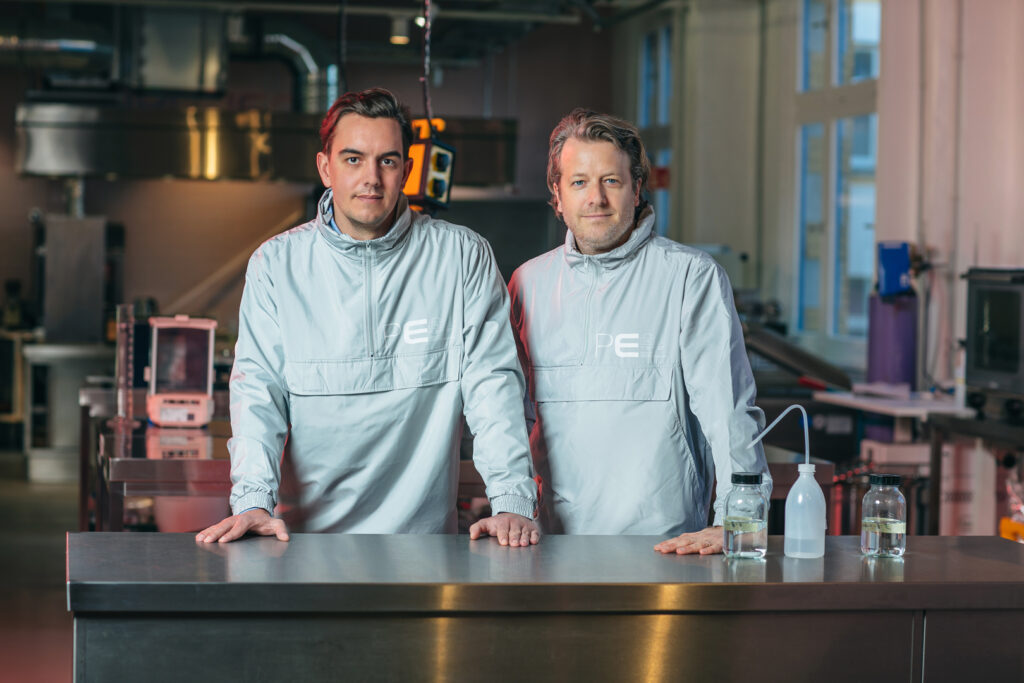
持続可能な未来のための代替肉の再定義
課題:肉への嗜好と地球への代償
肉の消費がもたらす環境への影響は深刻ですが、日常生活ではほとんど目に見えません。肉は世界の食文化に深く根付いており、スーパーマーケットから屋台まで、どこでも手に入ります。肉の感覚的な魅力—その味、食感、食べる満足感—は、気候変動に関する説得力のある合理的な議論があっても、人々が肉を諦めることを困難にしています。
意識の高まりにもかかわらず、肉の需要は依然として増加し、毎年世界の温室効果ガス排出量の約12%を占めています。植物ベースの代替品が登場してはいますが、これらは排出削減に必要な大規模な採用を促進するには至っていません。多くのこれらの製品は、肉本来の食感、味、または全体的な満足感において、完全に再現できていません。本物を真に再現する代替品がなければ、消費者の習慣を変えることは依然として課題です。
解決策:完璧な代替肉の開発
プロジェクト・イーデンは、この問題を解決する鍵が食感にあると考えています。肉が分子レベルでどのように構成されているかを理解し、植物由来の原材料を使用して肉の構成を再現する新しい繊維スピニング技術を開発しました。このアプローチは、以下の三つの基本的な側面に焦点を当てています:
- 構造 – 肉の特徴的な外観を与える筋繊維の複雑な組み合わせと配置を再現。
- 食感 – “動物肉”の伝統的な食感、噛み応えやジューシーさを模倣する。
- 味 – 植物ベースの代替品を消費者にとって魅力的でなくする非動物性の違和感を排除。

肉は均一な素材ではなく、異なる繊維、脂肪、水分が組み合わさって、特有の体験を生み出しています。プロジェクト・イーデンは、肉の成分を解体し、植物由来の材料を使って従来の動物肉と区別がつかない方法で再構築する能力をマスターしました。
彼らの革新的な植物繊維スピニング技術は、非常にリアルな植物ベースのミートを作り、真の味と食感を提供します。また、その製品は環境への影響を劇的に減らします。プロジェクト・イーデンの製品1キログラムあたり、温室効果ガス排出量は最大20 kg CO₂-eq削減され、これは化石燃料車で100キロ走行するのと同じ削減効果を持っています。水の使用量は1キログラムあたり56 m³削減され、これは660人のヨーロッパ人が1日で使う水量に相当します。また、土地の使用量は1キログラムあたり最大20 m²削減され、これは小さな都市の庭の大きさに相当します。

なぜハピネスキャピタルなのか?
プロジェクト・イーデンとハピネスキャピタルのパートナーシップは、相互理解と共通の価値観に基づいています。デューデリジェンスのプロセスでは、ハピネスキャピタルのチーム(Eric、Terrence、Josh)は、プロジェクト・イーデンのミッションとビジネスの詳細に対する深い理解を示しました。彼らの細心のアプローチと洞察に満ちた質問は、単なる投資家でなく、長期的な成功を共に目指す戦略的なパートナーとしてのコミットメントを反映しています。
金融支援にとどまらず、ハピネスキャピタルは特にアジア市場におけるプロジェクト・イーデンの地理的拡大にとって重要な、ユニークなグローバル視点を提供しています。
未来:イノベーションの拡大と展開地域の拡大
プロジェクト・イーデンの当面の焦点は、その製品を市場に投入することです。今後24ヶ月間で、彼らは超リアルなスライス肉から始まり、様々な植物ベースの肉を発売する予定です。彼らの最初の製品である植物ベースのハムは、2025年前半にドイツ全土の2,000店舗のREWEスーパーマーケットでデビューする予定です。ドイツのプリスライスハム市場だけでも20億ユーロ以上の価値があり、これは彼らの旅における重要なマイルストーンとなります。
しかし、これはほんの始まりです。プロジェクト・イーデンの革新的な技術は様々な肉代替品に適用でき、将来の製品カテゴリーはすでに開発中です。小売を超えて、彼らはフードサービスや、動物不使用の代替品への移行を目指す確立されたブランドとのコラボレーションへの拡大を目指しています。長期的には、プロジェクト・イーデンはDACH地域(ドイツ、オーストリア、スイス)を超えて拡大し、ヨーロッパ全体、そして最終的には世界の残りの地域に新しい市場を開拓する予定です。
最先端の科学と素晴らしい食品への情熱を組み合わせることで、プロジェクト・イーデンは肉についての考え方を革命的に変える態勢を整えています。ハピネスキャピタルの支援を受け、彼らは持続可能な植物ベースの肉を、世界中の消費者にとって日常の食事における簡単で魅力的な選択肢にする道を歩んでいます。

info@HappinessCapital.com